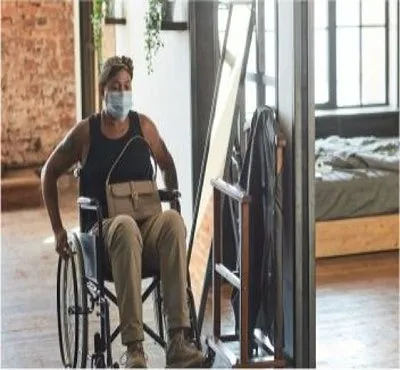We do not request reimbursement of costs
(such as repayment for obtaining medical records)
from veterans nor from people who suffer from multiple sclerosis.
- Call today for a free evaluation
- 1-888-774-7243
Temporary Partial Disability: What Types of Benefits Can You Get?
Temporary partial disability (TPD) is one of the types of benefits that an employee may receive if they suffer an injury that renders them physically incapable of performing their job duties. Injured employees may be eligible for partial disability benefits under the state’s workers’ compensation laws.
Under these laws, the temporary benefits generally equal two-thirds of the worker’s average weekly wage. The workers may receive the difference between their regular pay and the reduced pay. An accident can have a disastrous outcome, and a worker may incur huge bills relating to their injury-related medical treatment. The TPD payments can help these employees cover such costs and maintain their financial situations until they can safely return to regular job duty.
Who qualifies for temporary partial disability benefits?
You may qualify for temporary partial disability benefits if a work-related injury or illness prevents you from performing your job while you recover. In situations like these, a worker may be entitled to receive the payments to help replace their lost income and satisfy their financial needs.
To qualify for TPD, one must also be eligible for workers’ compensation benefits. Before proceeding with the short term disability benefits, the injured worker has to file a claim.
You should seek immediate medical treatment for your work-related injuries and get assessed by a medical professional. When your healthcare provider states that your condition temporarily prevents you from performing your job, you may start to receive these benefits. If your doctor states that your injury or illness is serious, the employer’s insurance company should begin paying temporary partial disability benefits.
If your condition is severe and prevents you from working in the long run, you should consider applying for Social Security disability benefits. When you are younger than 50 years old, the Social Security Administration will consider you a “younger individual.” The rules for disability over 50 are subject to change and may depend on an individual’s ability to perform various tasks. Proving disability and gathering the necessary evidence of your condition can be a daunting process. Therefore, an individual should maintain a record of medical evidence for future purposes.
When will the payments begin?
If you have been injured at the workplace, seeking workers’ compensation benefits can help you. These payments can become a necessary source for your family’s financial stability.
State laws specify a minimal waiting period before you can receive these benefits. In most cases, the condition should prevent you from working for at least three to seven days.
However, if the injury or illness prevents you from working for a longer period of time, such as more than 14 or 21 days, you can receive TPD benefits from the time you were first disabled. An injured or ill worker can start receiving benefits after the healthcare provider states that they are temporarily disabled.
If there are any anticipated delays, the claim administrator will communicate that to you. They can send you a delay letter for benefits that justifies the reason for the delay. In addition, they should also brief you on the details about how you can pursue your disability claim. If there is a delay and you have not received a letter within 14 days of your request, the administrator may have to cover 10% additional costs. They would have to pay 10% extra even if they can provide a reasonable justification for the delay.
Who decides whether I can receive TPD payments?
Your doctor’s statement can help to determine whether you are eligible to receive benefits. If you do not agree with your treating doctor’s evaluation, you may request a change of treating doctor or pursue a second opinion. The laws allow you to get a second opinion from a qualified medical examiner (QME) or an agreed medical examiner (AME).
The TPD claims administrator can also ask for a second opinion if they disagree with your healthcare provider’s decision.
For how long can I receive these payments last?
According to the law, you may receive temporary disability benefits until one of the following:
- Your healthcare provider determines that you have recovered and you can return to work
- Your healthcare provider determines that your condition is stable and has reached maximum medical improvement (or MMI) status.
In these situations, the authorities will terminate or stop paying the TTD benefit payments.
What if there is a dispute regarding my temporary disability benefits?
When an employee is injured at work, the injured party has the right to apply for workers’ compensation. The employers may have to pay injured employees for their medical bills and lost wages they incur as a result of the accident or illness.
In some instances, disputes arise as to when an employee should be cleared to return to work. As mentioned above, the claims adjuster can raise a concern and ask for an independent medical exam (IME). They can ask for any other similar evaluation by a second doctor whose decision is neutral.
Both you and the claims adjuster have the option to request a second opinion. If you do not agree with the physician’s decision, you can request a hearing before your state’s workers’ compensation board. If you choose not to attend and undergo an IME, your temporary disability benefits may be reduced or ended.
If your benefits are cut off, a Social Security disability lawyer can review your case and communicate with the authorities on your behalf. Your attorney can explain the legal options available to you and help you receive the temporary partial disability benefits you need.
For a Free Evaluation
Monday : 9am–5pm
Tuesday : 9am–5pm
Wednesday : 9am–5pm
Thursday : 9am–5pm
Friday : 9am–5pm
Saturday : Closed
Sunday :Closed

